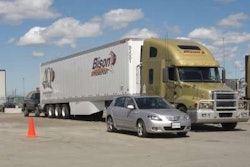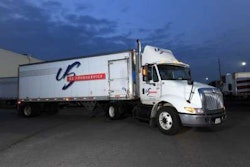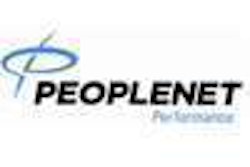Courts forget that carriers are federally regulated
Q: Are you familiar with the new Indiana decision, Ill. Bulk Carrier, Inc. v. Jackson? (2009 Ind. App. Lexis 900; Ind. Ct. App. June 16, 2009). The ambulance chaser appeared to lose, but if the negligent entrustment principles enunciated by the court are accepted, every logistics company better get much more liability insurance.
A: Thank you for sending me the case. In many respects, the court’s decision is curious because it ultimately correctly found that the federal motor carrier safety regulations impose direct liability on the motor carrier and that the safety regulations were nondelegable and did not extend up the supply chain. The scary part of the court’s analysis was then to jump over to state common law principles to decide if the defendants accepted responsibility for the carrier’s safe operations in its contract with the shipper.
It is clear to me that three decades after deregulation, the courts have forgotten that motor carriers are still a federally regulated utility and that the federal government, through the Federal Motor Carrier Safety Administration, ultimately calls the shots on who is safe to operate as a carrier. Decisions with dicta like Ill. Bulk Carrier, Inc. v. Jackson only confuse the issue. The courts seem to forget about preemption and that the scheme of federal regulation is intended to permit a shipper to use a licensed, authorized and insured carrier without having to second-guess the government regulators.
The government has decided that a million dollars in insurance backed up by a BMC-91 endorsement is sufficient to protect the public and that small motor carriers should have equal access to shippers’ traffic. Yet if ambulance chasers are to be allowed to troll indiscriminately for deep-pocket shippers, the result will be a chilling effect on competition.
We already see that repeatedly in contracts. When shippers, to avoid vicarious liability suits, insist on intermediaries “assuming carrier duties and responsibilities” for the safe operations of the licensed carrier they in turn hire, the broker or 3PL unwittingly gets thrown under the bus, as a series of recent decisions clearly show. (Ill. Bulk Carrier is instructive and helpful in this regard because the defendants only accepted responsibility for hiring licensed and authorized carriers and escaped liability under the common law analysis.)
Maybe it is about time for the entire transportation industry to recognize that this issue should not divide us in contracts. The registration of motor carriers and the safety regulations are intended to protect “the traveling and shipping public.” Somehow that fact has been lost in the brave new world of deregulation and the specter of runaway jury awards on tenuous state law theories.
If I were a transportation czar, maybe I could straighten all of this out. In the meantime, it is a real and continuing problem that creates only unmeasured conflict and consternation. Absent some contributory negligence on its part, a shipper or broker who hires a licensed, authorized and insured carrier should be no more liable for the motor carrier’s accident, loaded or empty, than subway riders should be responsible for the recent accident on the Washington, D.C. Red Line.
– Henry Seaton is a transportation lawyer
who represents carriers.
Colorado enacts ‘Green Truck’ law
Colorado Gov. Bill Ritter signed into law the Green Truck and Motor Carrier Economic Development Program (HB 1298), which not only provides incentives for reducing emissions but also will make the state more competitive in trucking as it gradually brings Colorado’s taxes and fees in line with those of surrounding states:
·The bill would phase in a change to how state sales tax is applied on trucking fleets. Currently, a company must pay 100 percent of the state sales tax regardless of the fleet’s mileage in the state. HB 1298 will change this process gradually to where the state sales tax for tractors and trailers would be based upon the percentage of a fleet’s mileage within Colorado;
·The bill modifies the state law relating to enterprise zones that will allow rolling stock based in those areas to qualify for the 3 percent equipment tax credit. Like the sales tax provision, this portion of the law will be phased in over five years; and
·A “Green Truck Fund” will be created to help provide grants and funding to help fleets acquire U.S. Environmental Protection Agency SmartWay technologies that help reduce fuel consumption and emissions. In addition, this section includes a provision that could provide funds for the retirement/scrappage of pre-1990 trucks.
The implementation and phasing in of the sales tax change and enterprise tax credit provisions will not begin until Jan. 1, 2011. The green fund will be funded through private support.
In Brief
Federal Maritime Commission does not have the legal authority to require agents of ocean transportation intermediaries that are not themselves such intermediaries to obtain FMC licenses, the U.S. Court of Appeals for the District of Columbia Circuit ruled in late June. Landstar Express America and Landstar Global Logistics had challenged an FMC order requiring a license.
Sidney Baldon II, former owner-operator of Texas-based kerosene distributor Mid-Coast International, was sentenced in state court to 12 years in prison and $1 million in restitution after pleading guilty to evading state motor fuel taxes, blending motor fuel and engaging in a motor fuel tax scheme. According to the U.S. Department of Transportation’s Office of the Inspector General, Baldon blended untaxed kerosene with other materials and sold it as taxable motor fuel to retail filling stations.
Ryder System announced its certification as a Third Party Logistics Provider (3PL) in the Customs-Trade Partnership Against Terrorism (C-TPAT) for logistics operations in the United States, Canada and Mexico. Ryder says the 3PL certification enhances its existing C-TPAT certification as a Highway Carrier, enabling the company to incorporate its more complex North American supply chain operations into the program.
California Air Resources Board fined the San Diego Metropolitan Transit System $47,750, Fresno-based Home Design/Lifestyle Furniture $5,500 and St. Louis-based Monsanto Co. $4,000 for various diesel engine emissions violations that occurred throughout the state.










